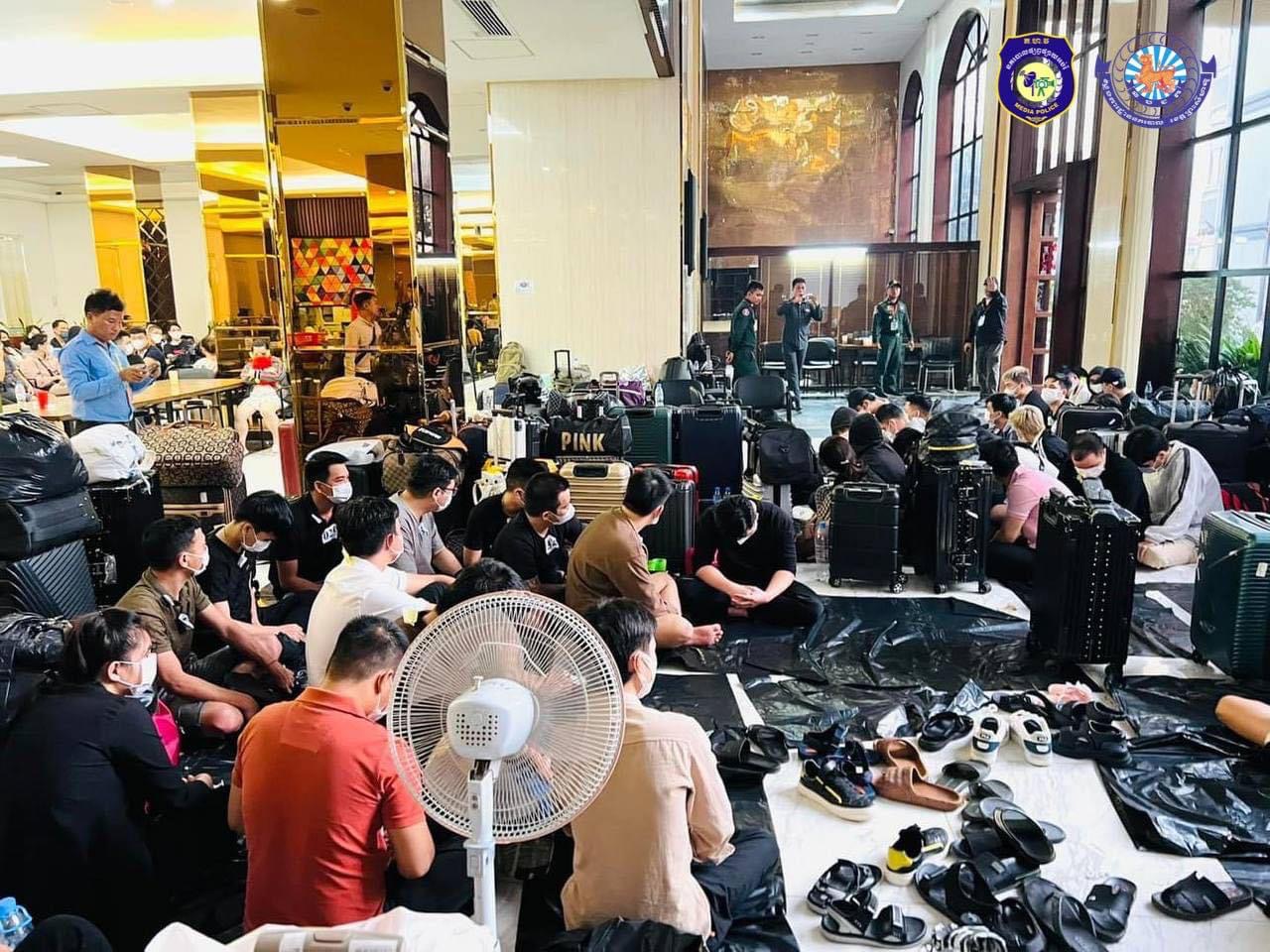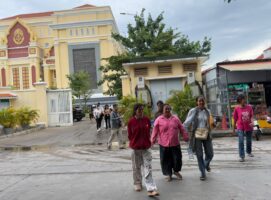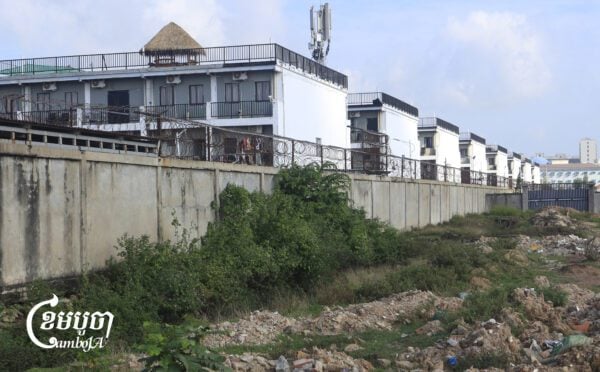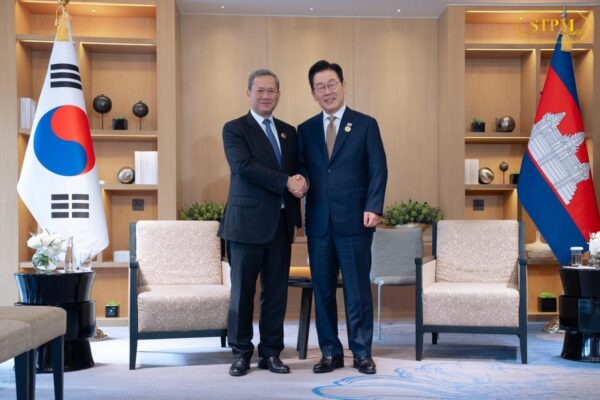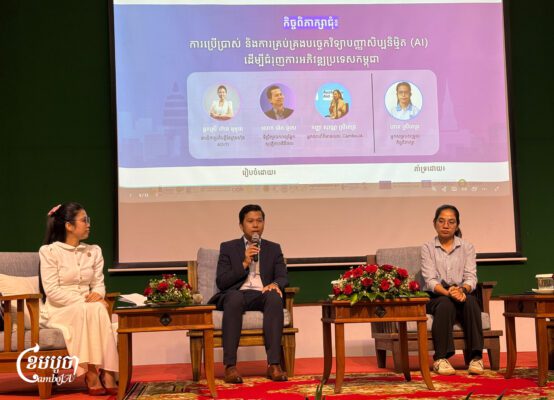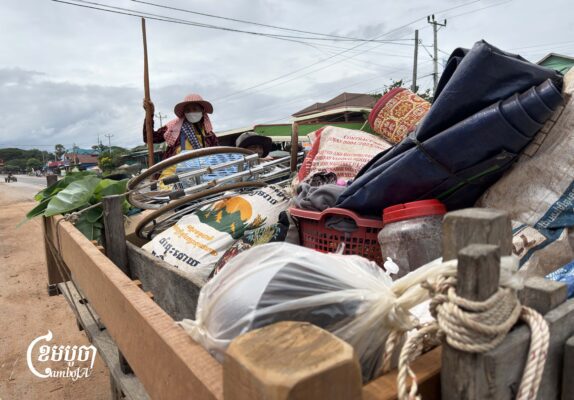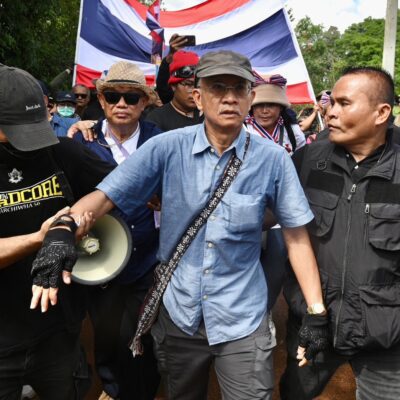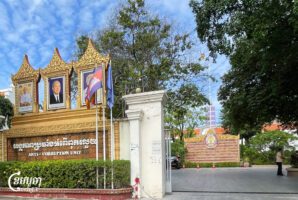UN experts are sounding the alarm over a humanitarian crisis unfolding in Southeast Asia, urging immediate, human rights-based action to dismantle scam compounds—including in Cambodia—where hundreds of thousands of people are “trafficked, trapped, and forced into online criminal operations”.
On May 21, a press release by the Office of the United Nations High Commissioner for Human Rights (OHCHR) highlighted that hundreds of thousands of people from around the world have been deceived by fraudulent job offers and trafficked into forced online criminal operations. These victims are being held in scam compounds located primarily in Cambodia, Myanmar, Laos, Philippines, and Malaysia.
The OHCHR highlight follows a joint statement by the Special Rapporteur on contemporary forms of slavery on May 10, which revealed a significant growth of online scam centres in Cambodia over the past several years, particularly since 2021. The operations, “often disguised as legitimate tech parks”, are reportedly run by “large criminal networks” and staffed with trafficked individuals.
Victims—often young, educated men—are stripped of their passports, confined to overcrowded and unsanitary conditions, and forced to work long hours under strict surveillance, it said. “Those who resist, face severe punishment including torture, sexual abuse, and even being sold to other operations.”
Many are allegedly held under debt bondage or ransom sought from their families. Reports also include deaths and organ removal.
“The situation has reached the level of a humanitarian and human rights crisis,” the statement said. They called on the international community – particularly Southeast and East Asia countries – to take urgent and coordinated action to protect victims and step up prevention efforts.
“Once trafficked, victims are deprived of their liberty and subjected to torture, ill treatment, severe violence and abuse including beatings, electrocution, solitary confinement and sexual violence. They have limited access to food and clean water, and must endure cramped and unsanitary living conditions,” the experts said.
UN experts alleged that the crimes thrive amid corruption and collusion with officials, while government efforts to help victims and punish perpetrators remain insufficient.
“Immediate human rights-based action is urgently needed and a victim-centred approach focusing on survivors’ dignity and rights must be prioritized in all interventions,” they said.
The scams are highly mobile and widespread, the report alleged, with centers in “Sihanoukville, Phnom Penh, Pailin, Anlong Veng, O’Smach, Kandal, Pursat, Koh Kong, Bavet, Chrey Thom, Kampot, Oddar Meanchey, Poipet, Banteay Meanchey, Svay Rieng, and within the Dara Sakor and Henge Thmorda Special Economic Zones”.
According to the information they received, people around the world are being lured into such operations through fake job advertisements on social media platforms such as Facebook, TikTok, and LinkedIn, promising high-paying tech jobs in Southeast Asia.
A recent report titled “Policies and Patterns: State-Abetted Transnational Crime in Cambodia as a Global Security Threat,” authored by Harvard Asia Center fellow Jacob Sims, accused Cambodia’s ruling party of enabling a multibillion-dollar scam industry.
It alleged that this was “driven by human trafficking and shielded by state protection”. The government has strongly rejected the claims. The report also calls for expanded U.S. sanctions on elites tied to these operations.
According to the Cambodia Counter Trafficking in Persons Project, at least 350 scam compounds are operating across the country, amounting to an estimated 150,000 foreign migrant workers.
When asked about the UN’s call for immediate, human rights-based action to dismantle scam compounds, spokesperson of the Cambodian Human Rights Committee, Sreang Chenda, declined to comment. He said the issues related to online fraud and human trafficking fall outside the committee’s jurisdiction, despite issues raised by the special rapporteur.
Interior Ministry spokesperson Touch Sokha also declined to comment, referring questions to government spokesperson Pen Bona, who did not reply at the time of publication.
Naly Pilorge, outreach director at LICADHO, told CamboJA News that the organization supports the UN rapporteurs’ findings, and echoes their call for governments to take immediate, human rights-based action—especially to ensure that victims of human trafficking are not punished for criminal or immigration-related offenses.
“We have made pleas for assistance from victims trafficked in compounds across Cambodia, which highlights the need for this issue to be addressed with more urgency and will, rather than denied or labelled as labor disputes,” she said.
Ny Sokha, president of rights group ADHOC said that the government should not dismiss the concerns by international organizations on large-scale human trafficking for forced labor and scam compounds. He urged the authorities to take the recommendations of UN experts seriously, both for the protection of citizens and the country’s reputation.
He emphasized that the government must investigate companies suspected of involvement in trafficking and online fraud, and take decisive legal action.
“The law must be strictly enforced against all individuals and companies engaged in trafficking, ensuring they are held accountable,” he said. “It must strive to strengthen cooperation with countries in the region that are found involved in human trafficking.”

